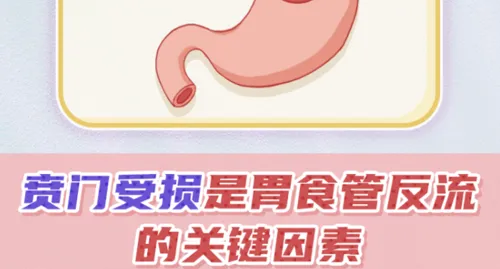What is Traditional Chinese Medicine for childhood autism care?

Author: Shi Wenli, Deputy Chief Physician of Pediatrics, Xiyuan Hospital, China Academy of Chinese Medical Sciences. Chen Xi, Pediatric Resident, Xiyuan Hospital, Chinese Academy of Traditional Chinese Medicine. Review: Huang Jing, Deputy Chief Physician, Pediatric Department, Xiyuan Hospital, China Academy of Chinese Medical Sciences.
Title: What is Traditional Chinese Medicine for childhood autism care?
Introduction: Caring for children with autism requires a holistic approach, including clothing, diet, environment, and exercise for healthy growth.
Keywords: ["Children's health", 'Traditional Chinese Medicine and wellness.']
Autism Spectrum Disorder (ASD) is a neurodevelopmental disorder primarily characterized by difficulties in social interaction, language communication challenges, and repetitive behaviors. The etiology of autism is complex, and treatment mainly involves behavioral interventions, special education, and other methods. In Traditional Chinese Medicine (TCM), this condition is categorized as "childhood dizziness," "speech delay," and "lack of wisdom." This article will explore the key points of care for children with autism from a TCM perspective, focusing on four aspects: clothing, diet, housing, and transportation, to achieve the goals of balancing yin and yang, harmonizing qi and blood, and calming the mind.
I. Understanding Autism from the Perspective of Traditional Chinese Medicine
Traditional Chinese medicine holds that the occurrence of autism is closely related to insufficient innate endowment and inadequate postnatal nourishment. Autism Spectrum Disorder (ASD) often results from a lack of nourishment in the fetus combined with the parents’ depleted essence and blood, leading to insufficient kidney essence, empty marrow, and inadequate nourishment to the brain.
The kidneys are deemed the foundation of innate health, responsible for producing marrow. Since marrow is connected to the brain, a deficiency in kidney essence can lead to delayed intellectual development. The heart governs the spirit; if the heart is not nourished, it may result in flat expressions and narrowed interests. The liver facilitates the smooth flow of qi; constrained liver qi can cause emotional instability, irritability, and anxiety. The spleen and stomach are critical to acquired health; if the spleen fails to function effectively, it results in a lack of source for generating qi and blood, exacerbating innate insufficiency.
This condition predominantly involves dysfunction of the heart, liver, spleen, and kidneys, with pathological products like phlegm and blood stasis obstructing the meridians, leading to a failure to nourish and activate the mind properly. Common clinical manifestations include deficiencies in kidney essence, dual deficiencies of heart and spleen, exuberance of heart and liver fire, and phlegm obstructing the clear orifices, among others.
II. Clothing: Apparel Care and Sensory Comfort
Children with Autism Spectrum Disorder (ASD) often experience sensory integration issues and are unusually sensitive to the texture and feel of fabrics. Traditional Chinese medicine believes that "the lungs govern the skin," as the skin is the body's largest sensory organ and is in direct contact with the external environment. Choosing suitable clothing can help soothe the emotions of children with autism and diminish behavioral problems stemming from discomfort.
Material selection: It is advisable to choose soft and breathable fabrics like natural pure cotton and silk, avoiding synthetic materials that can generate static electricity and irritation. The color should primarily highlight soft and elegant light shades, while avoiding overly bright or gaudy colors. The style should be moderately loose to reduce a sense of restriction, ensuring that areas like the neckline, cuffs, and waistband are not too tight.
Dressing for the Four Seasons: Adhere to the principle of "keeping warm in spring and avoiding cold in autumn." In spring, when yang energy begins to rise, clothing should not be reduced too early. Despite the summer's heat, it is important to keep the abdomen warm in air-conditioned environments. In autumn, gradually add more clothing to enhance cold tolerance. In winter, emphasize protection for the neck, back, abdomen, and feet. For children with tactile sensitivity, a progressive desensitization method can be employed; initially allow them to touch various fabric materials, followed by gradually helping them adapt to wearing them.
III. Food: Dietary Regulation and Spleen-Stomach Nourishment
Traditional Chinese medicine asserts that "the spleen and stomach are the foundation of postnatal life." Children with autism frequently show spleen and stomach dysfunction, manifested as picky eating, food aversion, and digestive issues. Proper dietary adjustments can enhance nutritional status and promote brain development.
Dietary Principles: It is crucial to adhere to a balanced dietary concept of "grains for nourishment, fruits for assistance, livestock for benefits, and vegetables for sustenance." Staple foods should primarily consist of easily digestible grains such as millet and japonica rice, supplemented with appropriate amounts of ingredients beneficial for the spleen, including yam, lotus seeds, and coix seeds. Preferred sources of protein are white meats like fish and chicken, while red meat should be consumed in moderation. Vegetables should be varied, with particular recommendations for vitamin-rich varieties such as carrots, pumpkins, and spinach. Local and seasonal fruits are best, avoiding excessive consumption of cold fruits that may harm the spleen and stomach's yang energy.
Countermeasures for abnormalities: For picky eaters, gradually introduce new foods using a "small portions and variety" method; for those suffering from indigestion, foods like hawthorn and malt can aid digestion; for constipation, it's advisable to increase dietary fiber moderately, using ingredients like hemp seeds and almonds to facilitate bowel movement. It is best to avoid raw, cold, greasy, spicy, and overly processed foods, as these can produce phlegm and moisture, exacerbating symptoms.
IV. Residence: Living Environment and Emotional Regulation
The living environment significantly impacts the emotions and behavior of children with autism. Traditional Chinese medicine emphasizes the harmony between humanity and nature, advocating for living surroundings that align with nature and achieve harmonious unity.
Home Arrangement: The room's color scheme should be soft, primarily utilizing cool tones such as light blue and light green to stabilize emotions. The layout should be simple and orderly, avoiding clutter that increases anxiety. Designated activity areas can be established to assist children in developing a sense of spatial order. There should be adequate, but not overwhelming, natural light, with soft warm lighting employed at night. It's important to maintain suitable temperature and humidity levels and ensure regular ventilation.
Unique Arrangement: A "Sensory Safe Corner" can be created, providing a quiet and comfortable small space for children to calm down when their emotions intensify. Soft background music can be played within, like the sounds of the guqin or flowing water, with the volume maintained below 40 decibels. Introducing natural elements, including an aquarium with fish and green plants, can serve to soothe emotions.
Regular daily routines. Traditional Chinese Medicine posits that the circulation of qi and blood in the body varies with time, promoting the idea of "work at sunrise and rest at sunset." It is essential to ensure ample sleep (10-13 hours per day for preschool children). Steering clear of stimulating activities one hour before bedtime and engaging in sleep-promoting activities such as soaking feet in warm water or gentle massage is crucial.
V. Exercise and Meridian Unblocking
Appropriate physical exercise is tremendously beneficial for the physical and mental development of children with autism. Traditional Chinese medicine asserts that "movement brings forth vitality"; exercise promotes the circulation of qi and blood, strengthens the body, and aids emotional regulation.
Recommended exercises: Traditional wellness practices such as Ba Duan Jin (Eight Pieces of Brocade) and Wu Qin Xi (Five Animal Frolics) feature gentle movements with a focus on coordinated breathing. Swimming encompasses a full-body workout; the aquatic environment offers a calming sensory experience. Walking, particularly barefoot on natural surfaces like grass or sand, stimulates the meridians in the feet. Activities such as swinging and sliding can enhance sensory integration skills through vestibular training.
Traditional Chinese medicine massage: Commonly utilized acupoints include: Baihui point (calms the mind and enhances intelligence), Sishencong points (promotes brain development), Zusanli point (strengthens the spleen and stomach), and Taichong point (soothes the liver and regulates qi). During massage, gentle pressure in conjunction with light touches should be employed to enhance parent-child interaction. Massages should occur during the day or one hour before sleep, avoiding immediate post-meal sessions.
Outdoor activities: Interaction with nature aligns with the Chinese medicine concept of "harmony between Heaven and humanity." Sunlight, fresh air, and natural landscapes yield positive effects on both body and mind. Spending 1-2 hours outdoors each day is recommended, encompassing interactive activities such as observing plants or playing in sand and water. Sun protection, heat precautions, and adequate hydration are essential.
VI. Conclusion
Each child with autism is a unique individual, necessitating that the care plan be crafted under professional guidance. This should merge modern rehabilitation methods to create a personalized comprehensive intervention plan. Furthermore, traditional Chinese medicine wisdom indicates that "the best practitioner treats before disease occurs." For children at high risk of autism, early preventive care is of utmost importance. By establishing a healthy lifestyle, optimizing growth environments, and promoting overall development, this practice reflects the vibrant application of the Chinese medicine philosophy of "strengthening the positive and eliminating the negative" in modern children’s health.
Note: The cover image is from a stock photo library, and reproducing it may lead to copyright disputes.
© 2025 Health Tribe.


